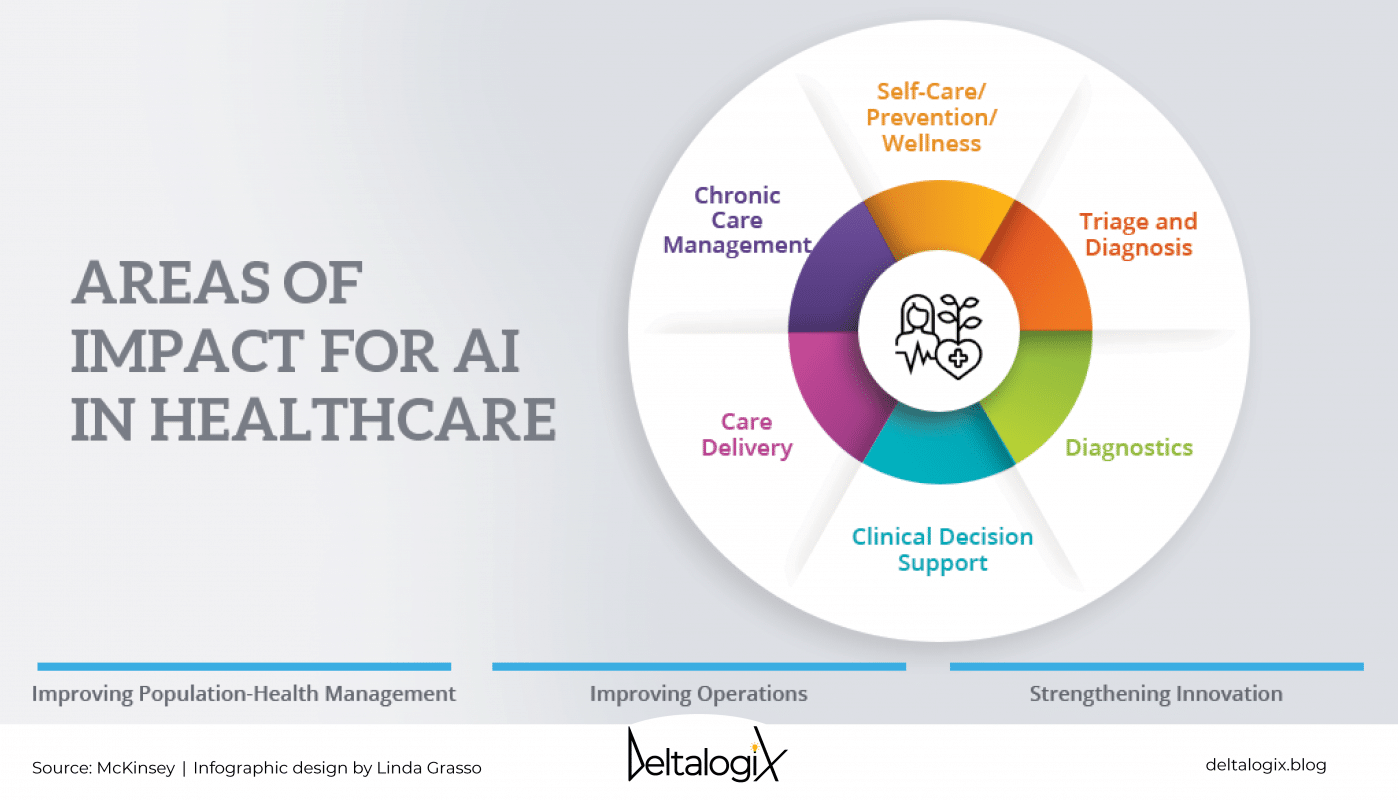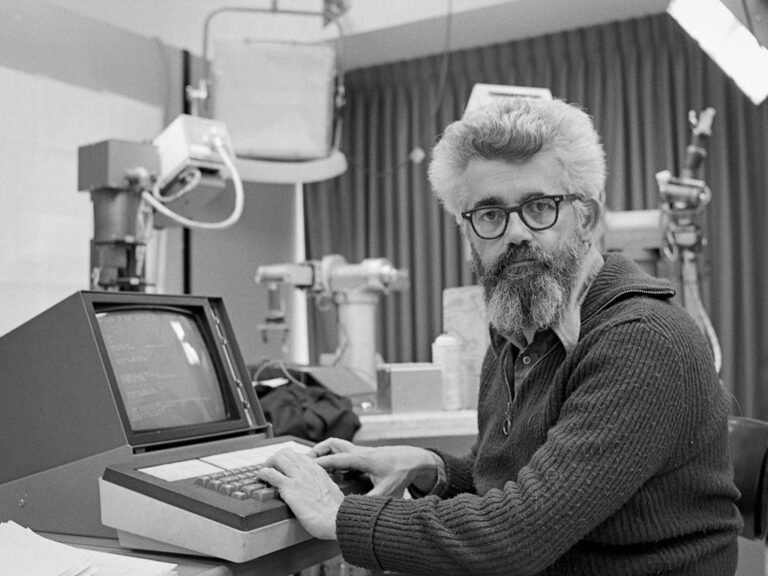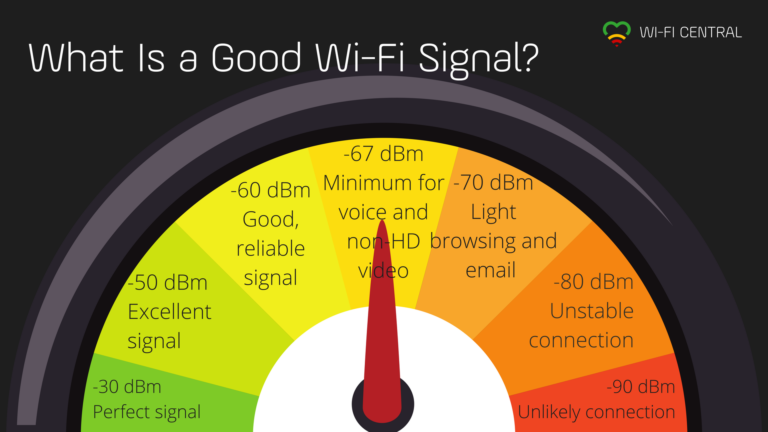What Are The Benefits Of AI In Medical Devices?
Artificial intelligence (AI) is now being used in a wide variety of medical devices to increase the accuracy and efficiency of medical treatments. AI can be used to detect and diagnose diseases, provide more accurate drug treatments, and automate mundane administrative tasks. AI also has the potential to reduce the cost of healthcare by streamlining operations and eliminating unnecessary treatments. In this article, we’ll discuss the various benefits of AI in medical devices and how it can help improve patient care. We’ll also look at some of the challenges that need to be addressed before AI can be fully integrated into medical devices.
Overview of AI in Medical Devices
Artificial Intelligence (AI) is increasingly being used in medical devices to improve accuracy and reliability, facilitate diagnosis, and increase productivity in healthcare. AI is a rapidly growing technology with various applications in medical devices, such as medical imaging, robotic surgery, and drug discovery. AI-enabled medical devices can provide medical professionals with more accurate and precise diagnosis and treatment options, allowing them to deliver improved patient care. This article will discuss the various benefits of AI in medical devices, including improved accuracy, faster diagnosis, and increased productivity.
AI-enabled medical devices can increase accuracy and reliability by providing medical professionals with more accurate and precise diagnosis and treatment options. AI-based algorithms can analyze vast amounts of data to recognize patterns and identify potential problems or diseases. This allows medical professionals to make more informed decisions and provide more effective treatments. AI-enabled medical devices can also reduce the time required to make a diagnosis, as they can quickly analyze large amounts of data and identify patterns that may indicate a specific condition.
AI-enabled medical devices can also increase productivity in healthcare. By automating certain tasks, such as the processing of images and data, AI can free up medical professionals’ time to focus on more complex tasks. AI can also help reduce costs by automating certain processes and by reducing the need for manual labor. Additionally, AI can help improve patient outcomes by providing more accurate and precise diagnoses and treatments.
Overall, AI-enabled medical devices offer numerous benefits, including improved accuracy and reliability, faster diagnosis, and increased productivity. AI can help medical professionals make more informed decisions and provide more effective treatments. It can also help reduce costs and improve patient outcomes. As AI continues to evolve, medical professionals should continue to take advantage of its potential benefits.
Advantages of AI in Medical Devices
As technology continues to evolve, so too do the advancements in medical devices. Artificial intelligence (AI) is one of the latest technological advancements to enter the medical industry, and it is projected to revolutionize the way medical devices are used and operated. AI is already playing a role in medical devices ranging from patient monitoring to diagnosis and treatment. In this article, we’ll explore the advantages of AI in medical devices and how it’s impacting the healthcare industry.
AI allows medical devices to operate more efficiently and accurately. With AI, medical devices can be programmed to detect patterns and recognize abnormalities faster than ever before. AI-enabled medical devices can also be used to accurately diagnose illnesses, identify potential treatments, and even predict the risk of certain diseases. This helps healthcare providers make informed decisions and provide the best possible care for their patients.
AI can also increase the accuracy of medical results. By utilizing AI, medical devices are able to analyze large amounts of data and detect patterns more accurately than a human. This can help improve the accuracy of diagnoses and treatment plans and ultimately lead to better patient outcomes.
Perhaps one of the most significant advantages of AI in medical devices is the ability to improve patient safety. AI-enabled medical devices can detect problems and alert healthcare providers when they occur, reducing the risk of medical errors and helping to ensure patients receive the best care possible.
In short, AI is revolutionizing the way medical devices are used and operated. AI-enabled medical devices can improve accuracy, safety, and patient outcomes. As AI continues to develop, we can expect to see even more advancements in medical devices as AI technology continues to expand.
Challenges of AI in Medical Devices
The integration of Artificial Intelligence (AI) in medical devices presents numerous benefits to healthcare professionals, but it is not without its challenges. As AI capabilities become increasingly advanced, it is important to understand and anticipate the potential difficulties that may arise. Common challenges of AI in medical devices include data privacy and security, regulatory compliance, and cost of implementation.
Data privacy and security is an area of concern when it comes to AI-powered medical devices. AI algorithms can learn from data, but the data must remain secure and confidential. This requires strong authentication protocols and encryption methods to protect data from unauthorized access.
Regulatory compliance is another challenge with AI-powered medical devices. AI algorithms must be tested and evaluated to ensure they meet safety and efficacy standards. Additionally, algorithms must be regularly updated to keep up with changing regulations.
Finally, implementing AI-powered medical devices can be costly due to the cost of creating, testing, and deploying AI algorithms. In addition to the upfront costs, organizations must factor in the cost of ongoing maintenance and upgrades to keep their AI-powered medical devices up to date.
Overall, AI-powered medical devices can bring many benefits to healthcare professionals, but organizations must be mindful of the potential challenges associated with them. Understanding and preparing for these challenges is essential for successful AI implementation in medical devices.

Implications of AI in Medical Devices
The use of Artificial Intelligence (AI) in medical devices is a rapidly growing field, with huge implications for healthcare. AI can help medical devices become more accurate, efficient, and cost-effective, which can have a significant impact on the quality of patient care. AI-driven medical devices have the potential to revolutionize the healthcare sector, through improved diagnosis and treatment of diseases, and improved safety and efficacy of treatments. AI can also be used to automate certain medical processes, such as image analysis and the interpretation of patient data. AI-driven medical devices are also becoming increasingly sophisticated, with the potential to detect and diagnose diseases faster, and to provide more personalized treatments. In addition, AI can be used to help medical professionals make better decisions, and to provide them with better insights into the patient’s overall health. As AI continues to evolve, the implications for medical devices will continue to grow, resulting in improved patient care and outcomes.
Examples of AI in Medical Devices
AI technology is revolutionizing the medical device industry. From advanced imaging techniques to robotic-assisted surgery, AI-powered devices are becoming more common in healthcare settings. AI-powered medical devices are designed to assist healthcare professionals in providing better patient care. AI-based medical devices can improve accuracy, efficiency, and safety, providing healthcare professionals with the tools to better diagnose and treat patients. Examples of AI-powered medical devices include:
Robotic-Assisted Surgery: Robotic-assisted surgery is a form of minimally invasive surgery that utilizes robotic arms to perform complex surgical tasks. Robotic-assisted surgery is more precise and can reduce recovery time for patients.
Computer-Assisted Diagnosis: AI-powered computer-assisted diagnosis systems are being developed to aid healthcare professionals in diagnosing illnesses. These systems can quickly and accurately diagnose illnesses by analyzing medical images and identifying patterns.
Imaging Systems: AI-powered imaging systems are used to diagnose and treat diseases. These systems are capable of quickly processing large amounts of data and can identify abnormalities in medical images.
Robotic Pharmacy: AI-powered robotic pharmacies are being developed to make the dispensing of medications more efficient. These robotic pharmacies are designed to quickly fill prescriptions and accurately dispense medications.
These are just a few examples of the many AI-powered medical devices currently being developed. AI-powered medical devices are revolutionizing the healthcare industry, providing healthcare professionals with the tools to provide better patient care. By utilizing AI-powered medical devices, healthcare professionals can improve accuracy, efficiency, and safety, resulting in better patient outcomes.
Future of AI in Medical Devices
As technology evolves, Artificial Intelligence (AI) is becoming increasingly present in the medical field. AI-powered medical devices are offering a variety of new capabilities, from advanced diagnostics to robot-assisted surgeries. AI is transforming the way medical devices are developed and used, significantly improving patient outcomes.
AI-powered medical devices are becoming more advanced, with the ability to detect subtle changes in body temperature, heart rate, and other vital signs. AI can also be used to diagnose diseases, analyze medical images, and even predict the likelihood of potential medical complications.
The use of AI in medical devices also brings additional advantages, such as enhanced accuracy and cost savings. AI-powered medical devices are able to detect medical anomalies and diseases with a high degree of accuracy, reducing the chances of misdiagnosis or wrong treatments. Moreover, AI-powered medical devices can detect symptoms of diseases or medical conditions earlier than traditional methods, which can lead to earlier intervention and better patient outcomes.
The use of AI in medical devices is also leading to cost savings. AI-powered medical devices can automate repetitive tasks, reducing the workload of medical professionals and reducing the overall cost of medical care.
In the coming years, the use of AI in medical devices will continue to expand, with more and more devices being developed to improve patient outcomes and reduce healthcare costs. In the future, AI-powered medical devices could become a cornerstone of healthcare, transforming the way medical diagnosis and treatment is performed.
FAQs About the What Are The Benefits Of AI In Medical Devices?
1. What types of medical devices are being developed with AI integration?
Answer: AI integration is being used to develop a range of medical devices, from robotic surgery devices to devices that can detect and diagnose diseases.
2. What are the benefits of AI in medical devices?
Answer: AI integration can improve the accuracy, safety, and speed of medical procedures, as well as reduce human error and increase efficiency. AI can also help diagnose and treat diseases more quickly and accurately, as well as enable personalized treatments.
3. How does AI in medical devices work?
Answer: AI in medical devices is used to analyze data from medical images, patient records, and other sources to detect patterns and identify trends. AI can also be used to automate certain tasks, such as identifying potential problems or recommending treatments.
Conclusion
The use of AI in medical devices is proving to be a revolutionary advancement in the medical field. AI-enabled devices are capable of performing complex tasks with a high degree of accuracy and efficiency. This has allowed medical professionals to more accurately diagnose and treat illnesses and ailments. Additionally, AI-enabled devices are able to provide personalized care to patients while reducing the cost of healthcare. AI-enabled medical devices are also able to detect and monitor patient health in real-time, providing an unprecedented level of care for patients. All in all, AI in medical devices has the potential to revolutionize healthcare and improve the quality of life for patients across the world.





